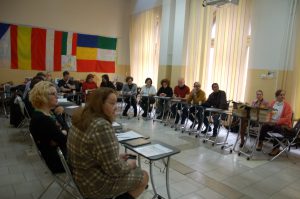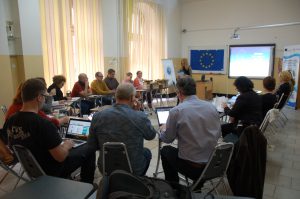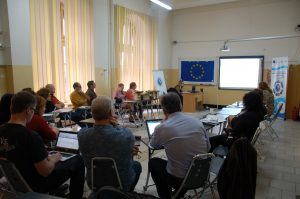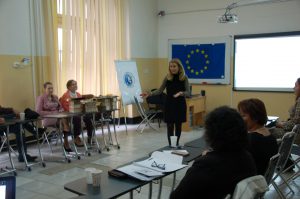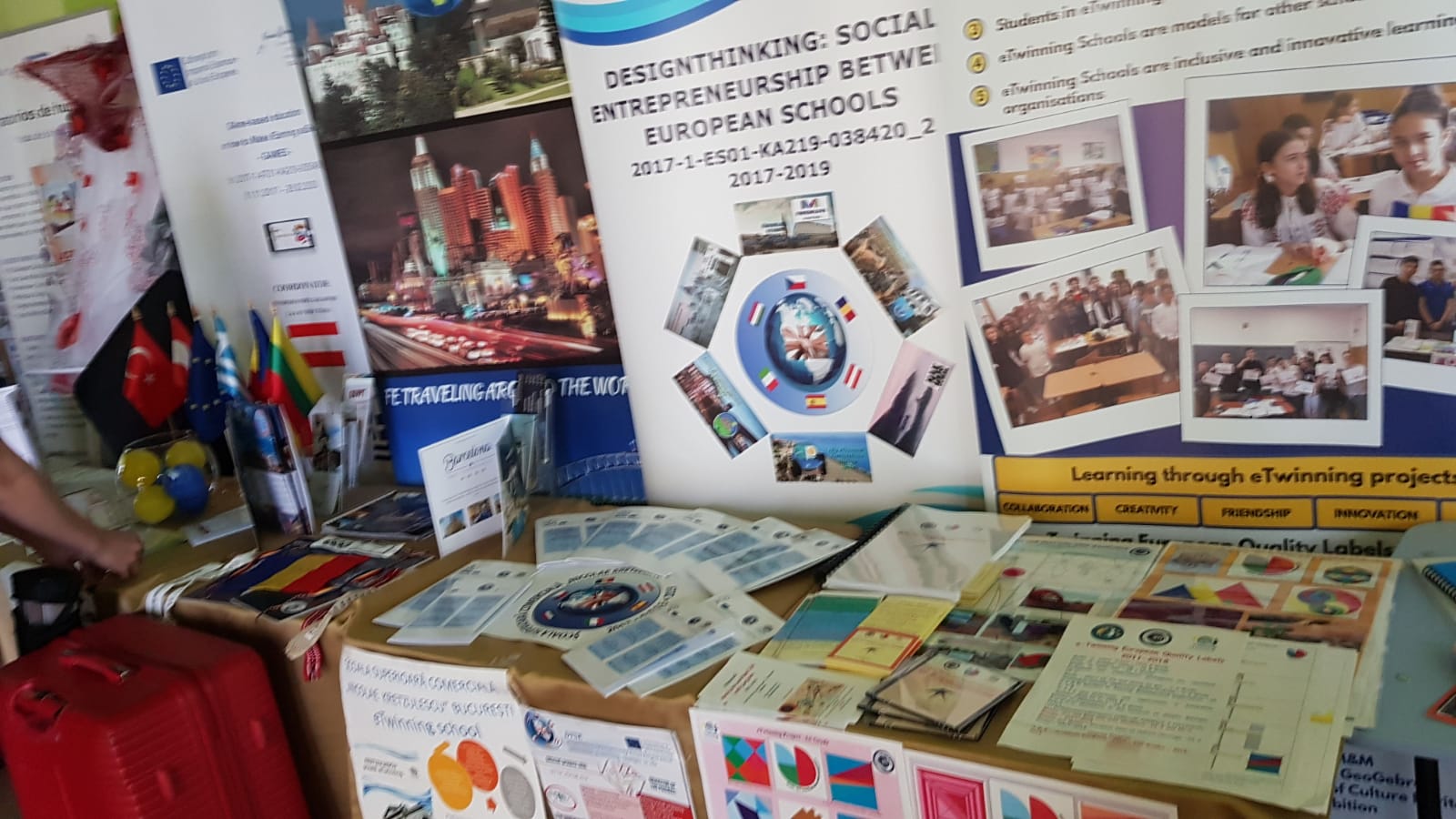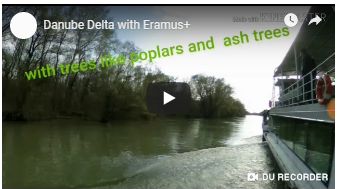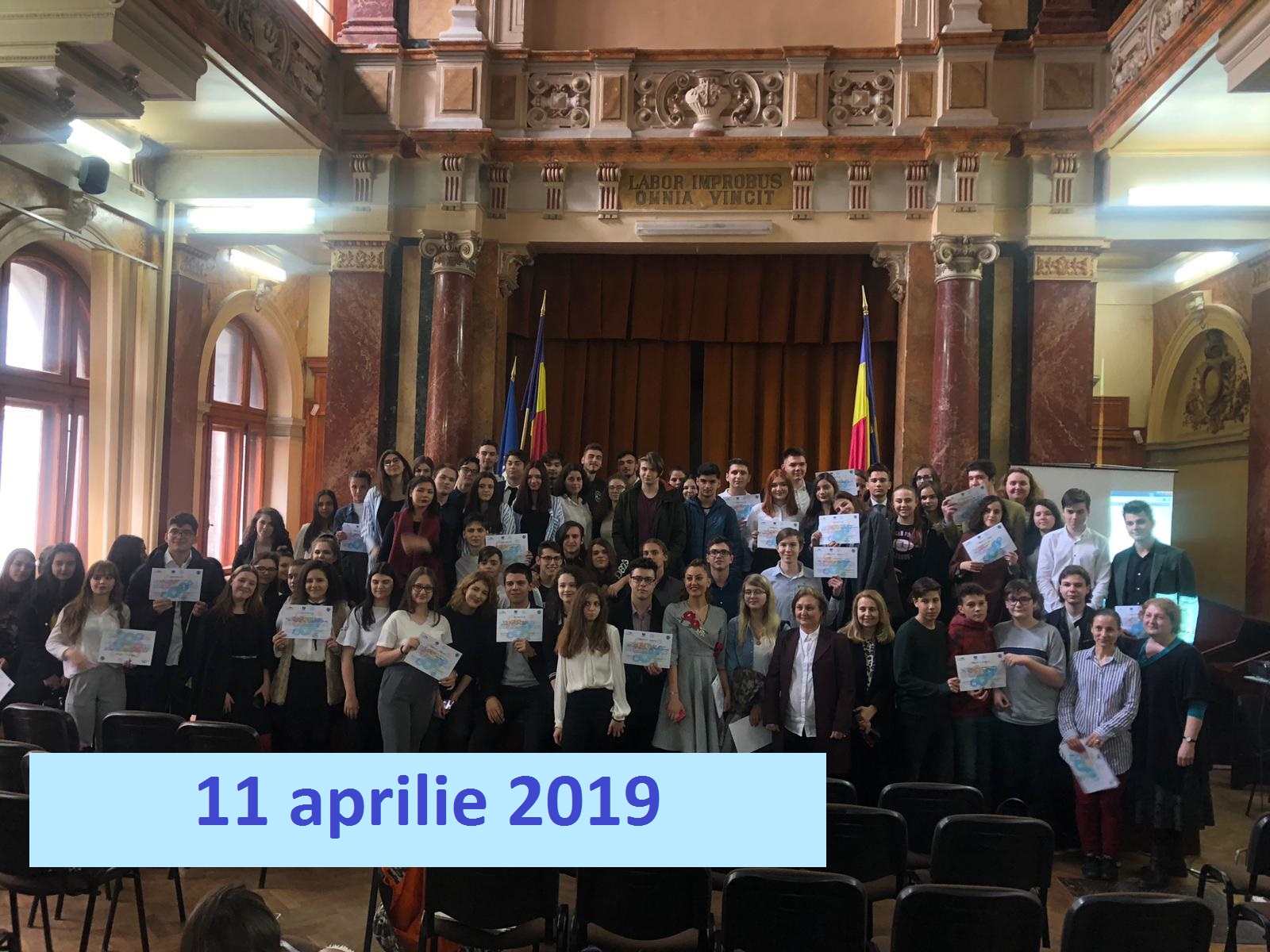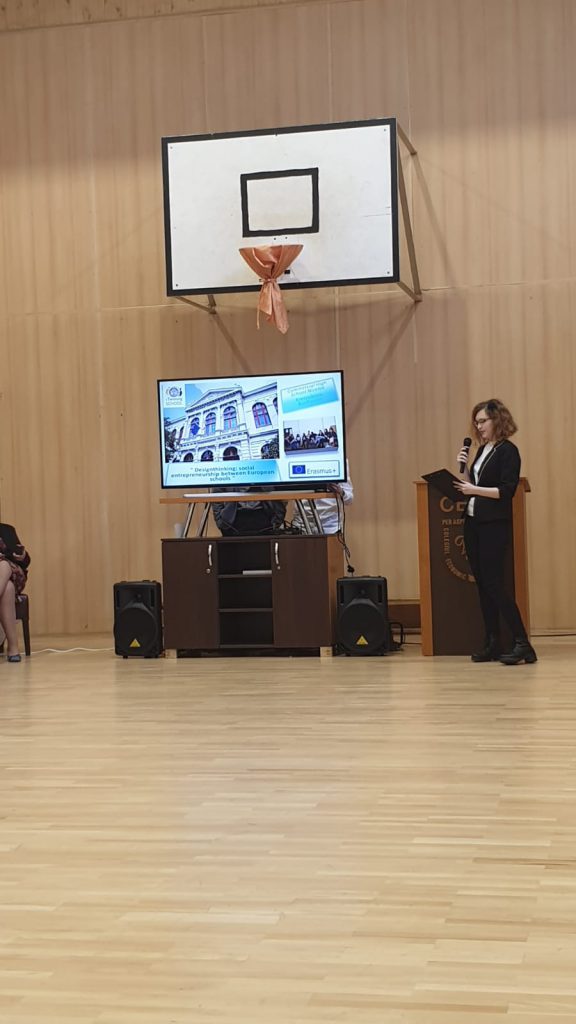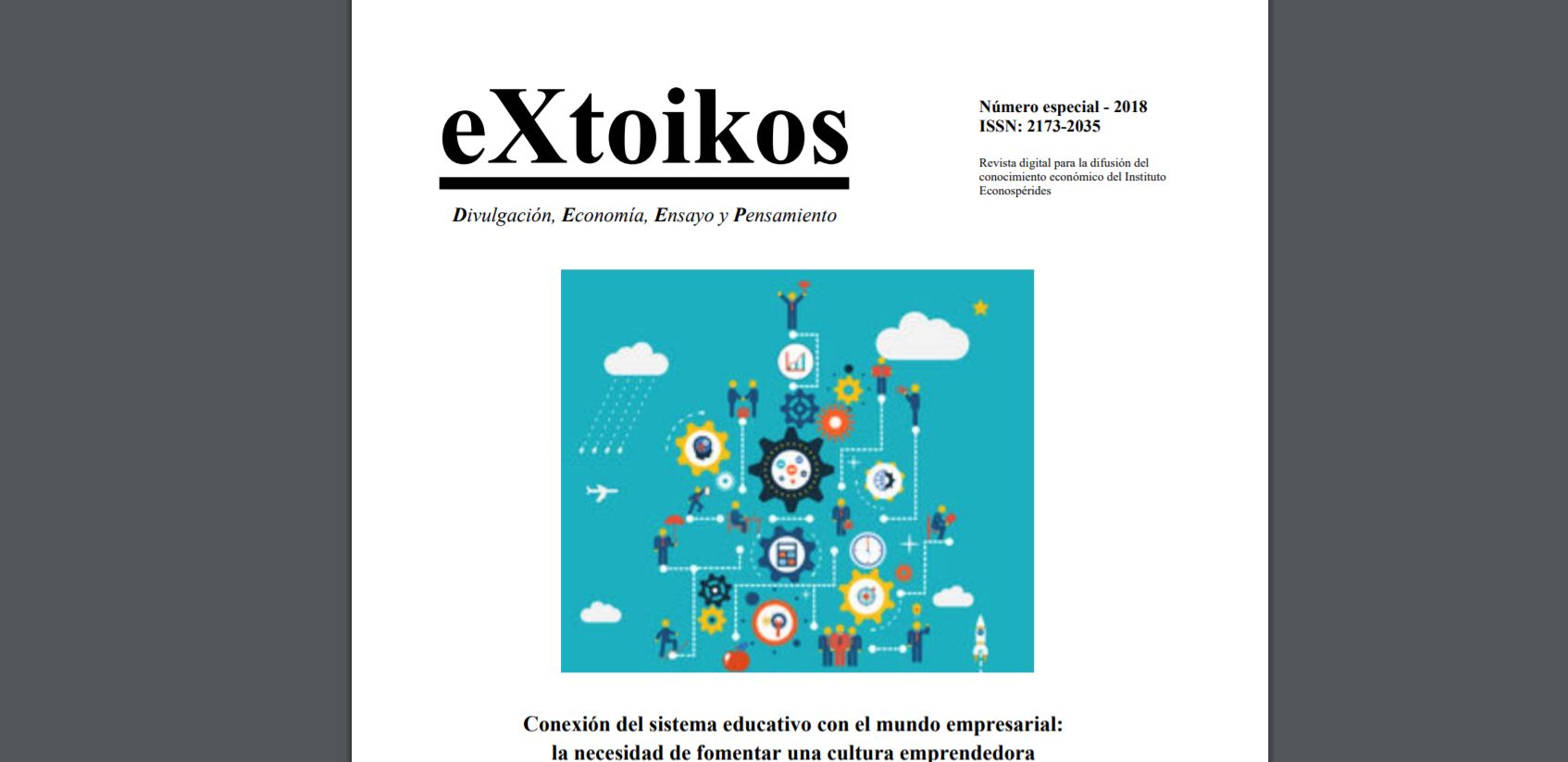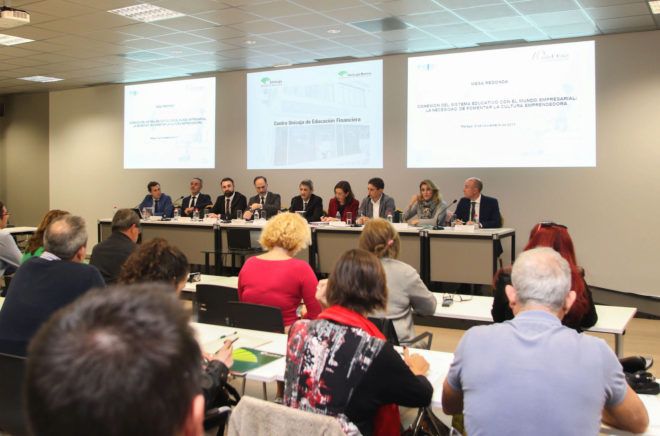Romanian experience DTSE Erasmus+
What did I expect from this Erasmus project ?
65% of children going to school today will have jobs that do not yet exist – is the verdict of the “Future of Jobs” report presented at the Davos World Economic Forum in 2016. That is why I believe new solutions need to be identified to speed up adapting the educational process to the realities of the Fourth Industrial Revolution.
Considering the above, I expected the Erasmus Project to promote educational alternatives and the use of interactive group methods to develop active learning.
How has the mind and students life changed as a result of this project?
Through this project, we have promoted learning based on issues connected with everyday life, using new technologies, and providing students with learning, working and cooperation opportunities in multinational teams.
Teachers and students have exchanged good practices at European level, have acquired new knowledge and skills, exchange of ideas, transfer of creative practices.
The project has led to the development of other relevant skills for students and teachers, such as critical thinking, creativity, collaboration, communication, flexibility, and social initiative development.
We have shared together new experiences of learning, intercultural communication, we have discovered new ways of motivating learning.
In other words this project brought, as its slogan said it, innovation in thinking and, as a consequence, changes in life.
Thank you for this successful collaboration !
I hope to see you in a new project !
Luminita Moise
Şcoala Superioară Comercială “Nicolae Kretzulescu”, Bucharest, Romania
National Contest Of Final Products “Made For Europe”, 18-21 April 2019, Cluj, Romania
In April 18-21, 2019 The “MADE FOR EUROPE” National Product Contest takes place in Cluj, ROMANIA
We had the chance to participate in this activity with a stand and printed magazines and online magazines about the activities that we have developed in the DTSE Erasmus Project.
The magazine for students participating in the SSCNK project :
” Antreprenori de ieri si de azi”
http://en.calameo.com/read/005414322d62bfa09f985
Bilingual magazines for all project partners:
- MAGAZINE M1, C1 https://en.calameo.com/read/005489581438a8e22947d
- MAGAZINE M2 https://en.calameo.com/read/005489581f8feb5ebb76e
- MAGAZINE C2 https://en.calameo.com/read/005489581115c7ec872d7
- MAGAZINE C3 https://en.calameo.com/read/0054895819665d7792e48
- MAGAZINE C4 https://en.calameo.com/read/005489581a2c94bd7411d
- MAGAZINE C5 https://en.calameo.com/read/005489581e1401bc878ac
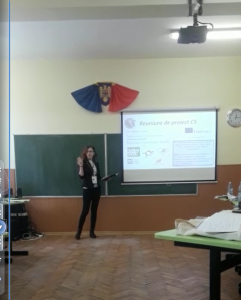
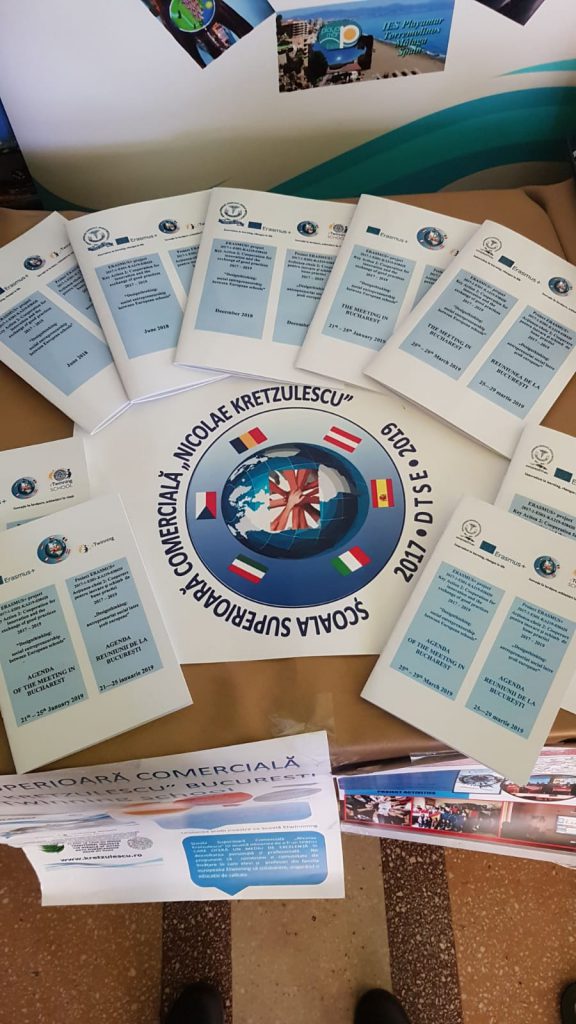
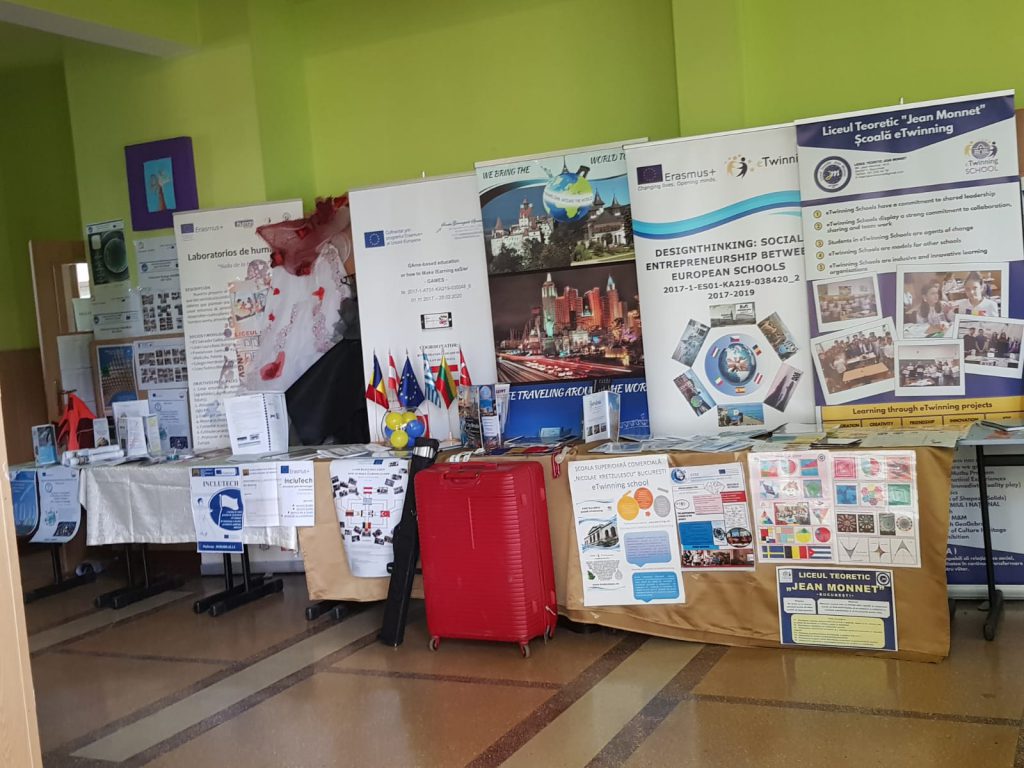
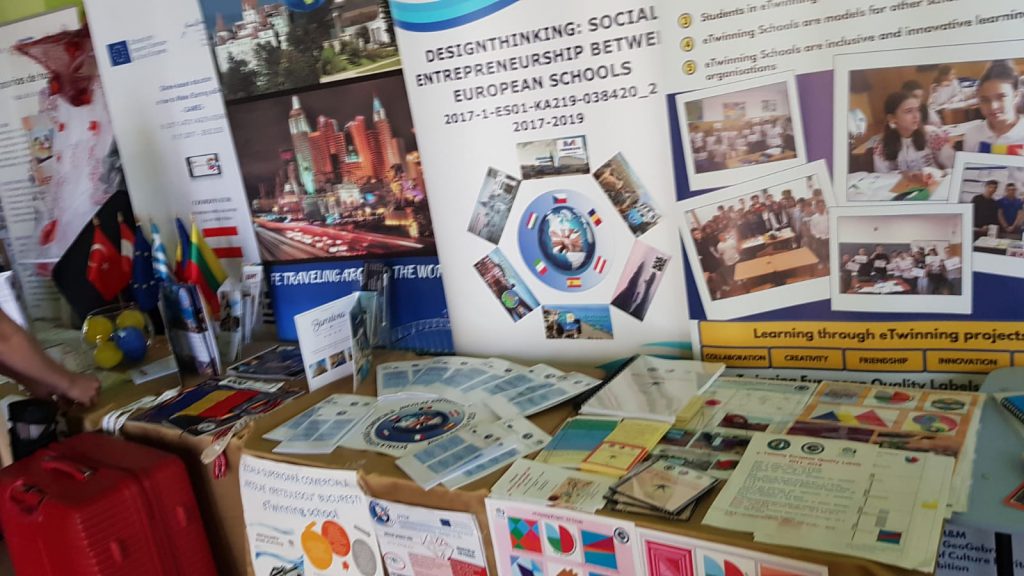
Specifically, they could tell you how you can prevent some common mistakes which are common with initial hop over to the website time essay authors.
C5 Bucharest and Danube Delta – Romania
One of the objetives of the activity C5 Visit to Bucharest and Danube Delta – Romania was to show the students the cultural and economic context of the Romanian Region each team made this video to show this ideas.
THE TEAM OF SPAIN
THE TEAM OF AUSTRIA
THE TEAM OF HUNGARY
BUCHAREST- THE HUNGARIAN TEAM
BUCHAREST- THE AUSTRIAN TEAM
Regional Symposium in SSCNK Bucharest April 11, 2019
One of the most important Objetives of the DTSE Proyect is to create an effective dissemination of the activities. To archieve this goal SSCNK School Preprared the Regional Symposium.
“The Future Started yesterday”
Tradition and Innovation in Education
At the SSCNK Symposium in Bucharest, the DTSE project was present at both the Teachers section and the students’ section to the regional autorities and educative centers.
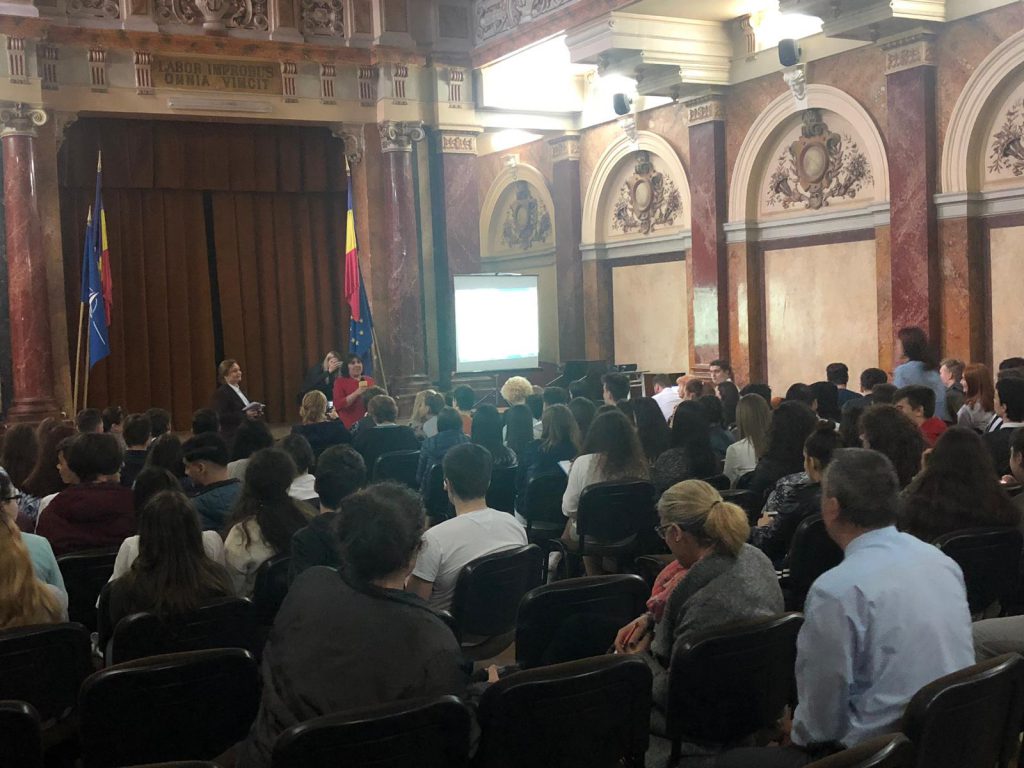
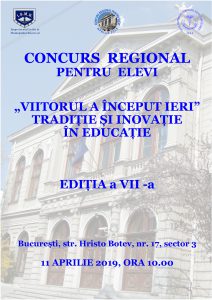
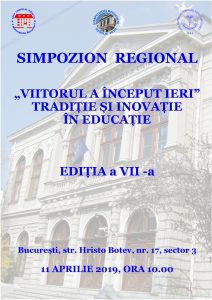
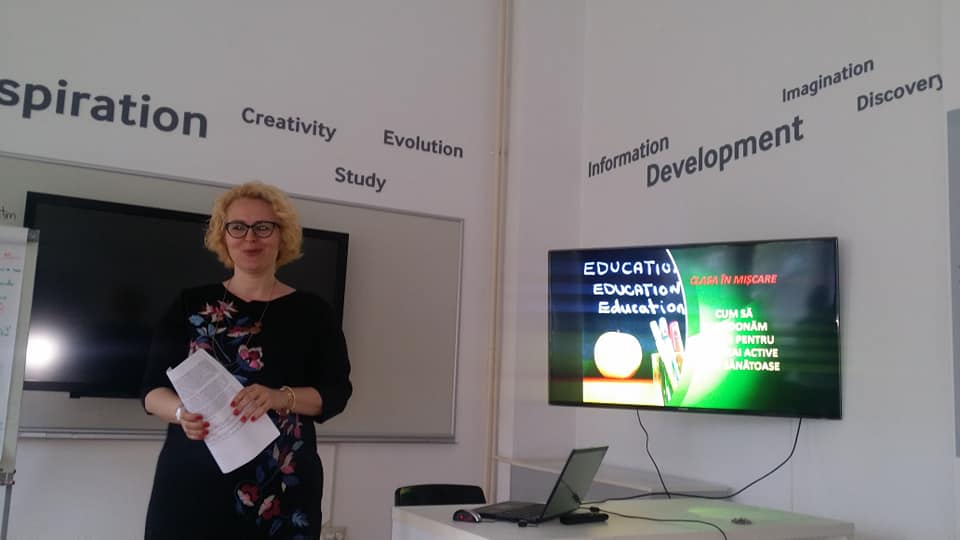
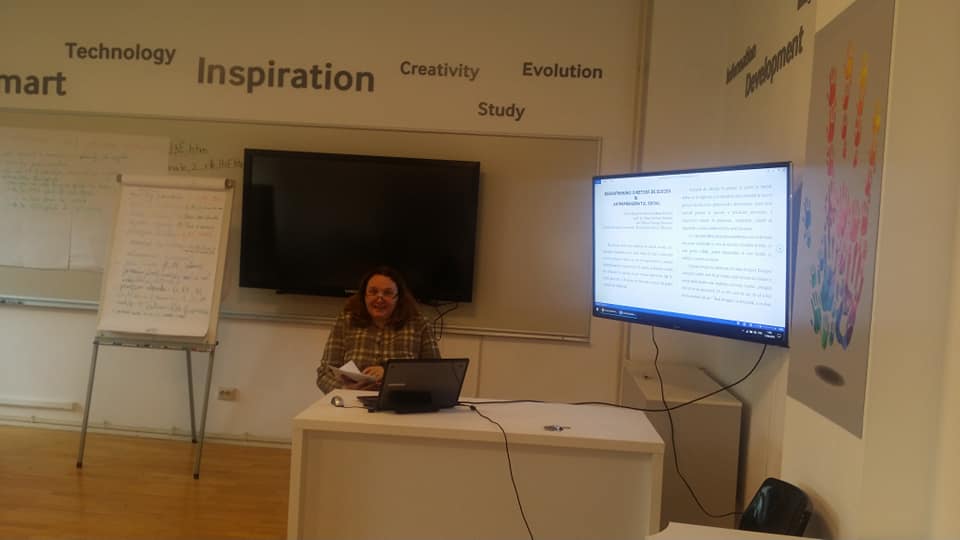
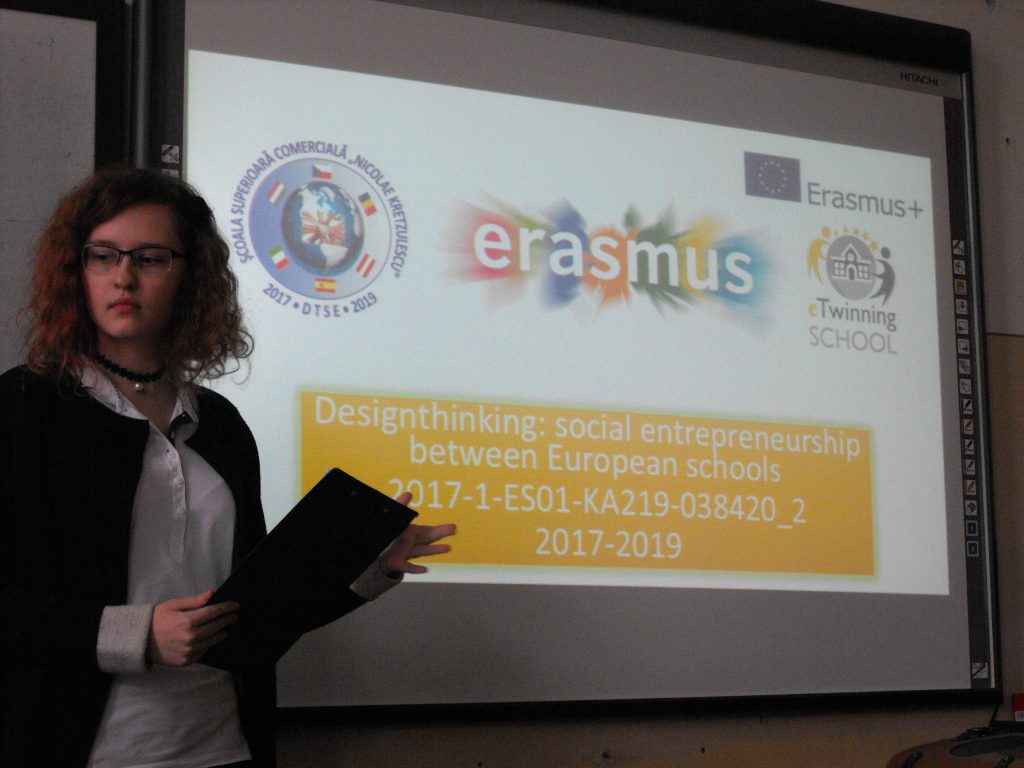
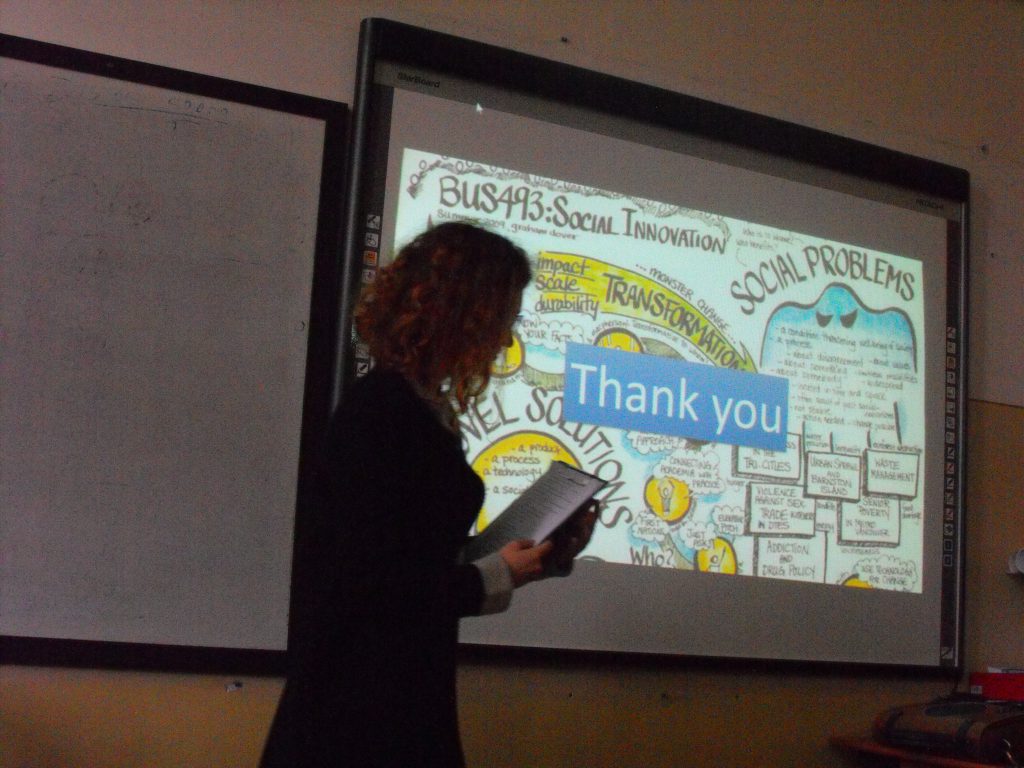
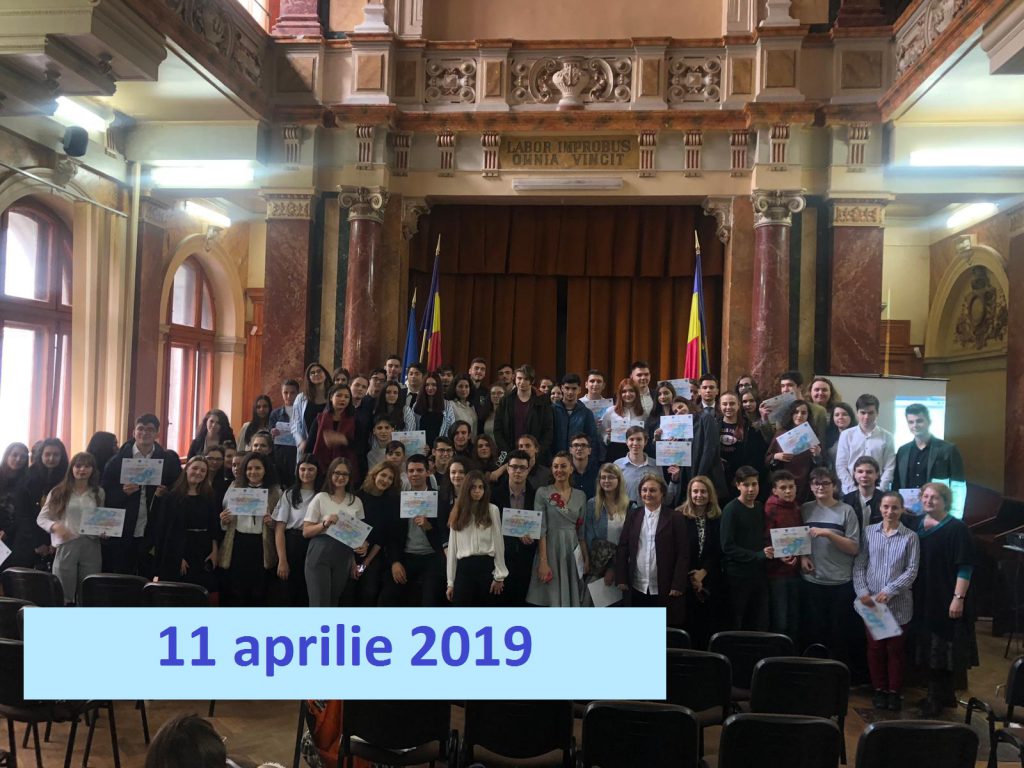
C5 Meeting Resume In Bucharest
25th – 29th March 2019
We celebrate together
World Money Week
The objectives of this meeting were:
- Developing the ability to understand financial products, their concepts and associated risks as well as making informed choices;
- Developing the ability to apply mathematical thinking to everyday situations;
- Developing students’ entrepreneurial skills;
- Acquiring Designthinking application skills to identify innovative solutions and helping customers overcome their challenges;
- Deepening young people’s collaborative techniques in entrepreneurship;
- Presenting examples of good practice in the field of entrepreneurship in each country;
- Sharing work methodologies, experiences and ideas;
- Acquiring analytical techniques from business environment;
- Improving ICT training and programming;
- Acquiring information about the European business network;
- Improving cooperation and friendship between our centers.
We had the pleasure of working together to achieve the goals we had set with:
- The Financial Supervisory Authority, which aims to ensure the stability, competitiveness and orderly functioning of financial instruments markets, to promote confidence in these markets and to invest in financial instruments and to protect operators and investors against unfair, abusive and fraudulent practices
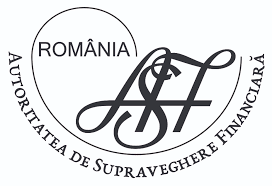
- The Bucharest Stock Exchange (BVB), the fundamental capital market institution, the most important institution of the local capital market that organizes and manages the regulated markets of financial instruments at European standards;
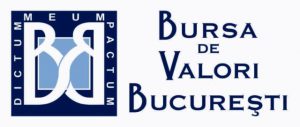
- EduFInet from Spain , Spanish inniciative for the financial education, with the support of Unicaja Bank .

- Junior Achievement Romania, part of JA Worldwide®, USA and JA Europe. JA is the largest international organization of economic and entrepreneurial education;
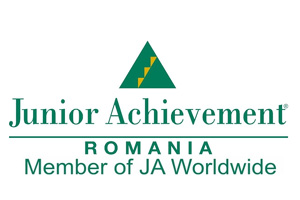
- Piscu School, Gaspar Association, Baltasar & Melchior;
- Minodora Cerin, Cristina Irod, consultants for cultural and educational projects.
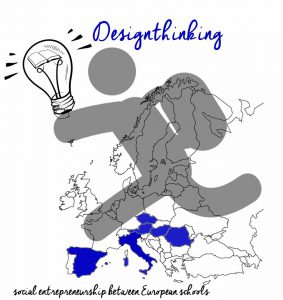
“Made for Europe” National Contest, Bucharest, Romania
March 23-25, 2019 took place the “Made for Europe” National Contest, the 13th edition, the Bucharest Stage. Four products of our project “Designthinking: social entrepreneurship between European schools” were presented on this occasion: brochure, site, magazine and PPT.
All of them were awarded, winning a first prize, a second prize and a third prize.
The brochure will compete in the national finale of the project.
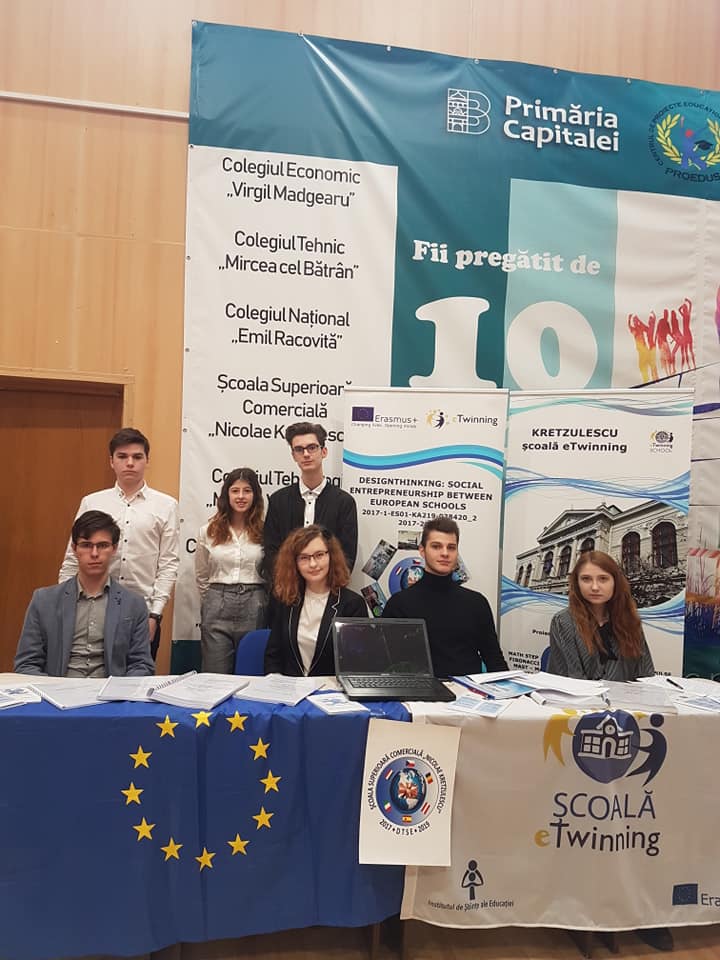
C4 Meeting, Bucharest Dissemination
SCHOOLS AND THE WORLD OF WORK
The theme of the meeting in Bucharest
21-25 01.2019
Dissemination
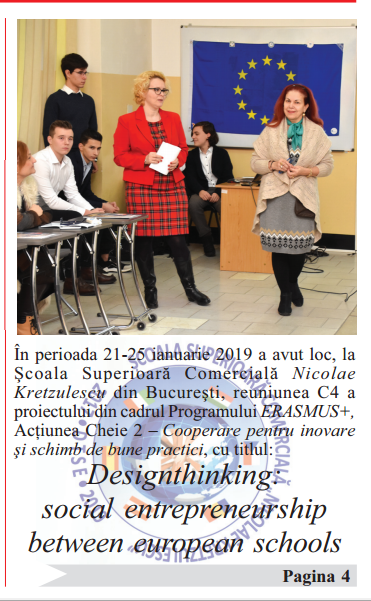
Article about our project in a Romanian publication.
or online
OPINIA NATIONALA- Newspaper for information and ideas of great national interest
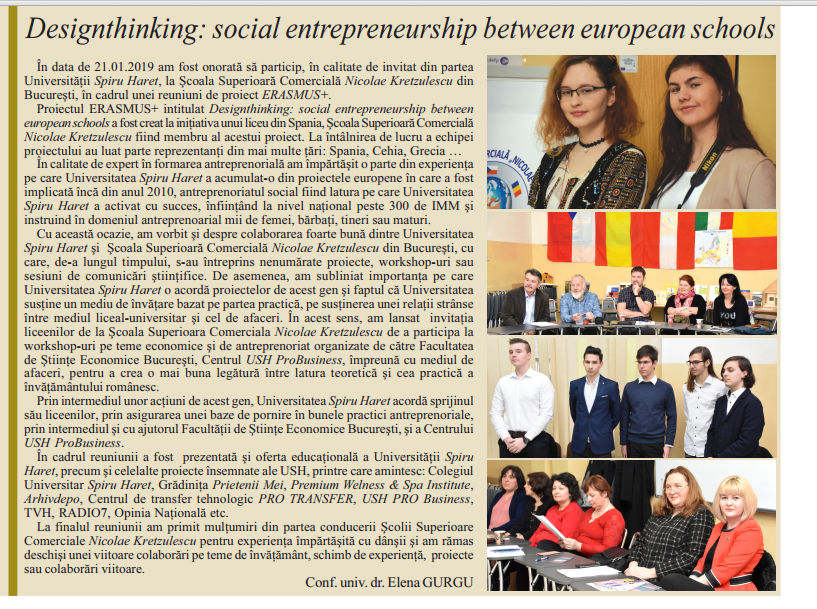
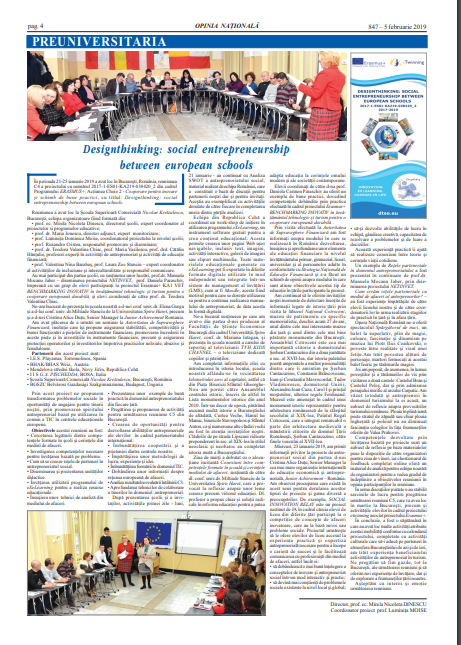
C4 Meeting, Bucharest, Tuesday, January 22, 2019
SCHOOLS AND THE WORLD OF WORK
The theme of the meeting in Bucharest
TUESDAY
22 .01.2019
Tuesday began with an exciting speech “Connections between the competences formed in the school and the requirements of the business environment” given by Miltiade Stanciu, Associate Professor PhD of “Spiru Haret” University, which has led to reflection on related topics such as the future of education. The teacher even proposed radical solutions to education reform in order to adapt education to the requirements of modern man and contemporary society.
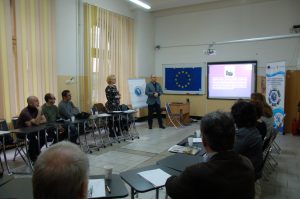
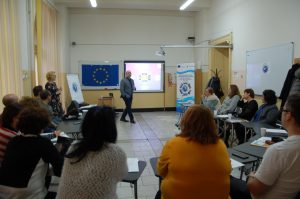
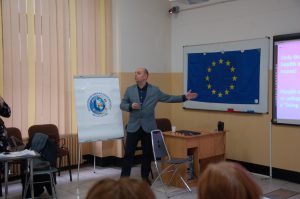
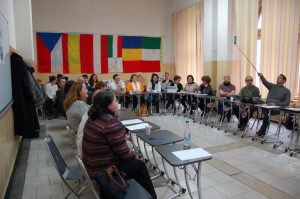
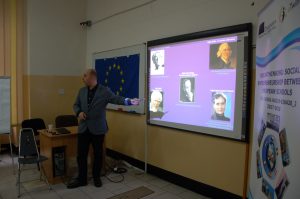
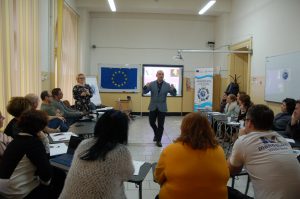
The students coordinated by Prof. Daniela Carmen Paraschiv provided an example of good practice proving the competencies acquired through the practice of the Erasmus
“BENCHMARKING INNOVATIVE in Technological Education and Tourism for Sustainable European Cooperation”.
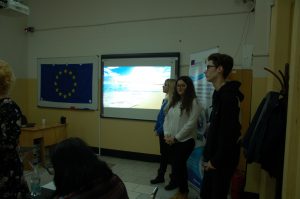
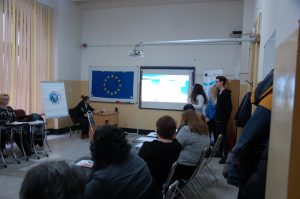
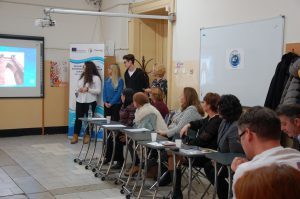
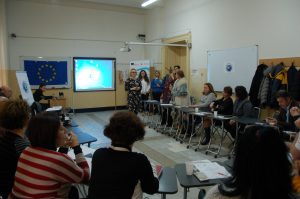
During our visit to the Financial Supervisory Authority, we have been informed about the way in which Romaniatries to develop, acquire and deepen some elements of financial education at the level of primary educationgymnasium, high school, university and adult education in accordance with the National Strategy for Financial Education and an exchange of views on how the objectives of this type of education are achieved in the countries participating in the project.
ASF Romania- Presentation within the DTSE project
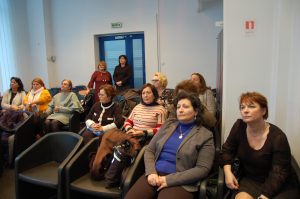
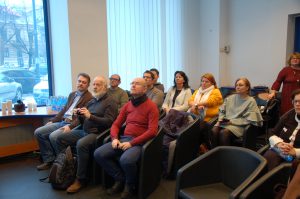
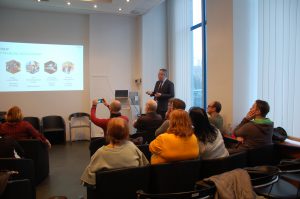
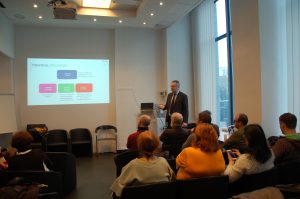
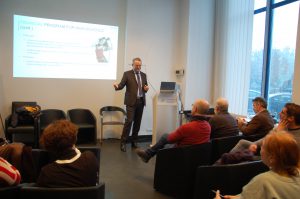
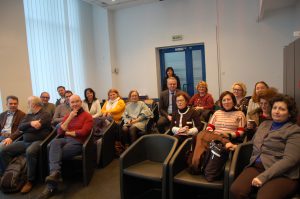
We continued to offer our guests moments of enjoyment accompanied by information on the history of the country by visiting the Cotroceni National Museum, a museum of memorialistic heritage opened 27 years ago, one of the most interesting museums in the country and one of the best preserved monuments from Bucharest. The Cotroceni ensemble is the most important building of the prince Serban Cantacuzino in the second half of the 19th century. 17, but the history of the palace bears the prints of many personalities, such as Şerban Cantacuzino, Constanin Brâncoveanu, oan and Constantin Mavrocordat, Tudor Vladimirescu, the ruler of Unirii Alexandru Ioan Cuza, Carol I and the heir prince, later King Ferdinand. The museum is situated in a historical monument representative of the Romanian architecture at the end of the 19th century, the royal palace Cotroceni, which remarkably integrated a part of the medieval architecture of the monastery founded by Walla Walla Wallachia, Şerban Cantacuzino, towards the end of the 17th century.
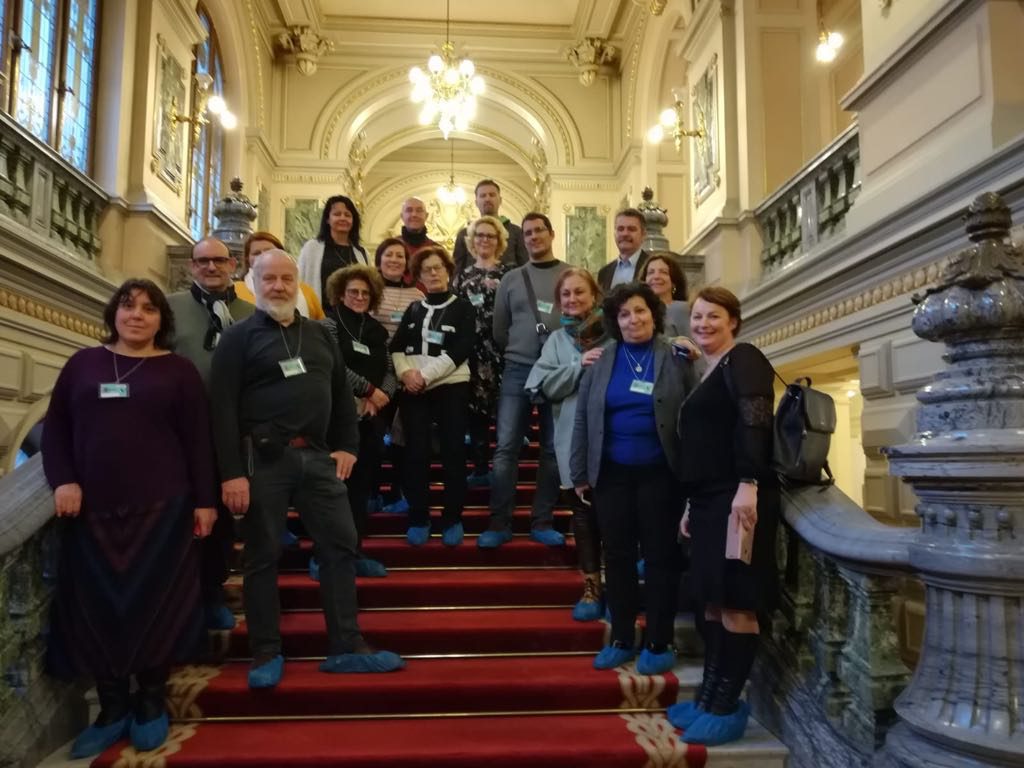
C4 Meeting, Bucharest, Wednesday, January 23, 2019
SCHOOLS AND THE WORLD OF WORK
The theme of the meeting in Bucharest
WEDNESDAY
23.01.2019
On Wednesday, January 23, 2019, we received information from a representative of the largest international organization for economic and entrepreneurial education, Junior Achievement-Romania through Mrs. Cristina Alice Duţu, Senior Manager, regarding social entrepreneurship projects. I have noticed that there is a deal about this type of project and the range of concerns. For example, SOCIAL INNOVATION RELAY is a project supported by JA-Romania through which high school students from different countries participate in a competition of innovative business concepts based on social needs or issues.
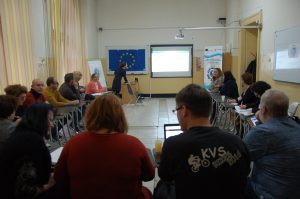
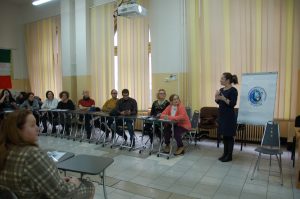
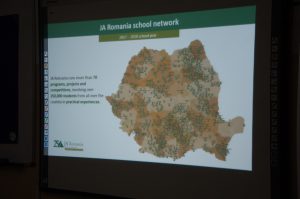
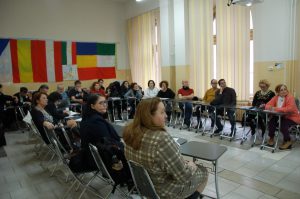
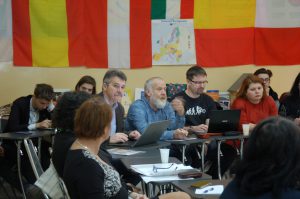
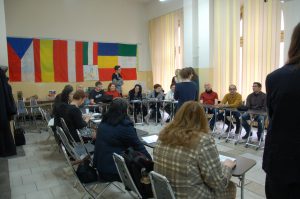
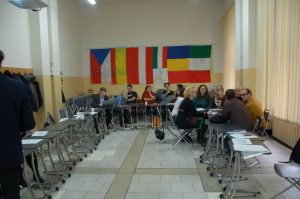
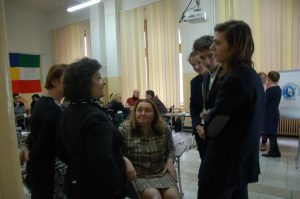
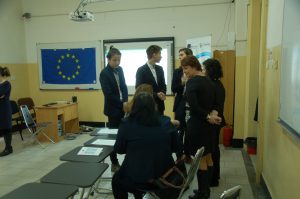
The project aims to give high school students access to the practical experience and entrepreneurial expertise needed to start a successful career and facilitate their communication with business professionals so that they:
- to gain a better understanding of the concepts of innovation and social entrepreneurship in an interactive and practical way;
- be more aware of existing social problems at local and global level;
- develop team work skills, creative thinking, problem-solving ability and decision-making.
This practical experience helps them establish connections between the theory and the requirements of everyday life.
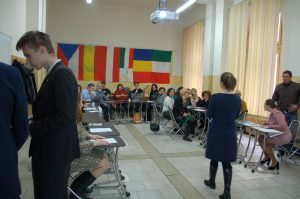
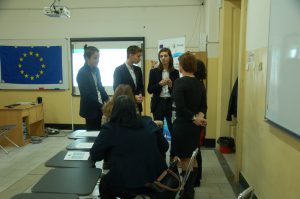
An example of the Partner Networks in the field of entrepreneurship was presented to us by Prof. Dr. Manuela Mocanu Jaber, through the dissemination of the NETINVET project.
How do we create partner networks with the business environment of entrepreneurs? – there have been experiences shared by our high school students and their coordinators following the practice internships in the country and outside the country.
